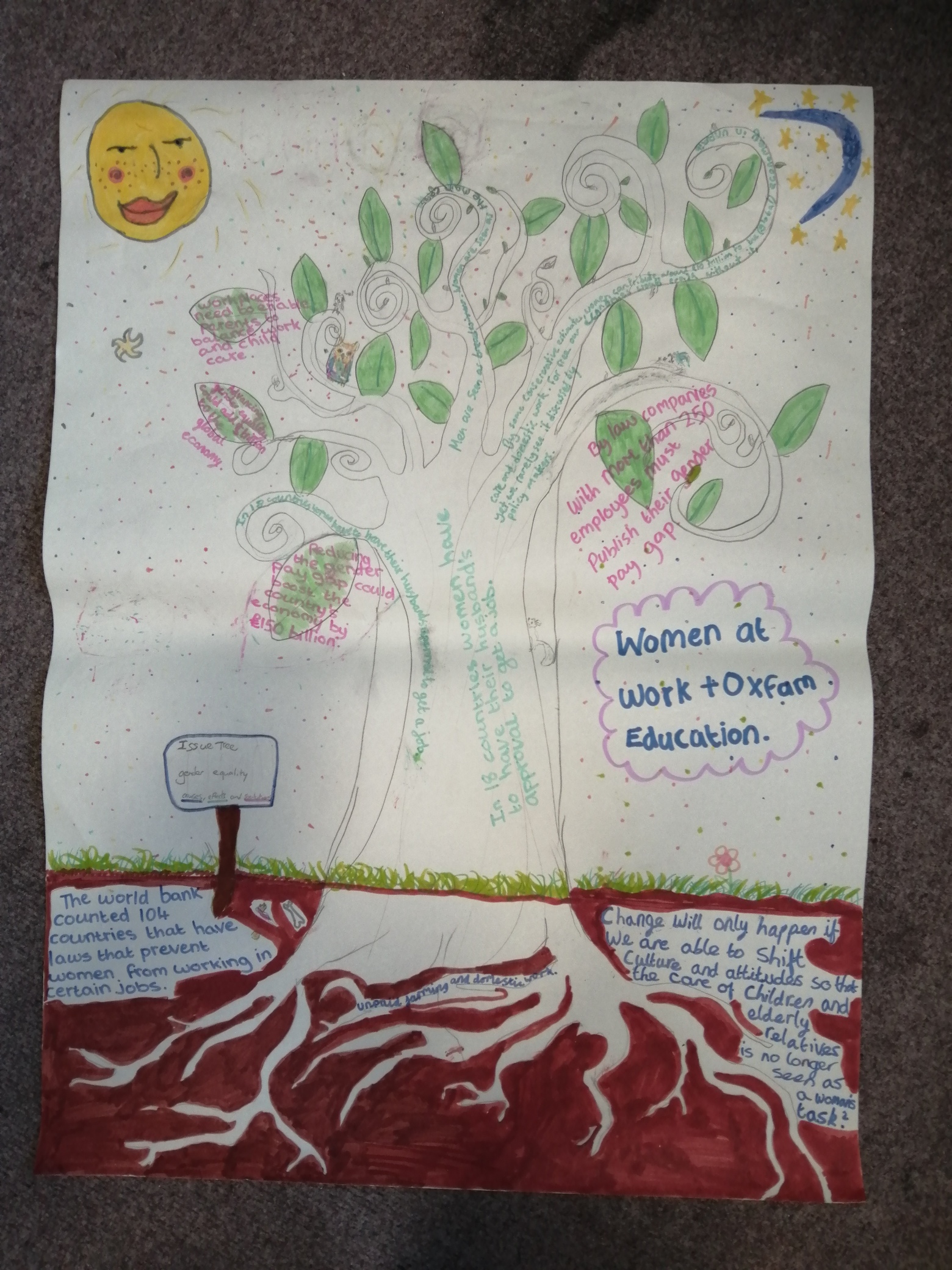Jennifer James Discusses Oxfam Cymru’s work in Schools in Wales and our new Decent Work for Women Resource for the Welsh Baccalaureate.

My name’s Jen and I’m the Global Citizenship Education Advisor for Oxfam Cymru. My work involves ensuring that teachers are willing, committed and able to teach global citizenship and that young people have the knowledge, understanding, values, attitudes and skills they need to be effective active citizens to overcome local and global poverty. I work with a range of organisations to ensure that global citizenship is a key part of teaching and learning in schools across Wales.
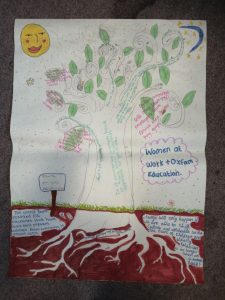
Oxfam works with schools because we believe that young people should have the opportunities to learn about global issues, have the skills to think critically about them, and develop attitudes and values to take action on those which they feel passionate about.
I’m passionate about educating young people about global issues because these are issues that do not just matter globally, they also matter locally. Poverty, migration, climate change and gender inequality have synergies across the world. Across the world and taking action on social injustice at home in Wales can have an impact on other countries.
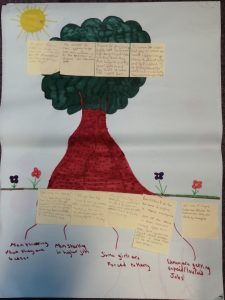
That’s why I’m excited about launching this new school’s resource ‘Decent Work for Women’. Before I tell you about you about it, let’s think about what the term ‘global citizen’ means. Firstly, see if you can answer the following questions:
Do you pay attention to what is happening elsewhere in the world on the news or on your social media feeds?
Do you respect others around you?
Do you care about our environment by recycling for example?
Do you care about big issues like poverty, or major disasters?
Do you help others in your community, place of work or Wales and the wider world?
Do you take responsibility for the environment and sustainability?
If you can answer yes to all of these then you are a global citizen. Global citizens participate in the community at a range of levels, locally and globally, working to make the world fairer, more just and sustainable and that’s what Oxfam’s all about!
So, let me tell you about our new resource. Over the past year I have been developing a new resource exploring the world of work in Wales and the world – Decent Work for Women– for the WJEC’s Welsh Baccalaureate Global Citizenship challenge. I’m excited that this is launched now ahead of Equal Pay Day on the 14th of November, 2019.
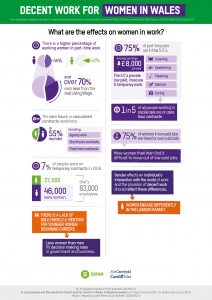
This new online resource explores gender and work around the world, demonstrating the connections between women in Wales and across the world. Globally, more women than men live in poverty, women shoulder an unfair share of unpaid care work, and experience restrictions on their freedoms. At Oxfam we put women at the heart of all that we do to ensure that they can participate equally in the economy and live a just and fair life.
This resource sits on the HWB site and you can access it for free in both English and Welsh. It’s aimed at ages 14-16 (key stage 4 ) but is also suitable for students studying global citizenship in colleges, to support equality and diversity programmes, and for anyone interested in studying gender.
This resource explores how women may find it difficult to access decent work right around the world. Even in 2019, some women are still not allowed to pursue certain careers because of their gender. In EU countries women account for only 7% of board chairs and presidents, and only 6% of chief executives in the largest companies. Women contribute 10 trillion dollars to the global economy through their unpaid care and domestic work. And at home, Wales has the UK’s widest gender pay gap – in Blaenau Gwent there is a 32% difference between the average pay of men and women.
Learners are challenged to take action on what they have learnt with the skills they have developed while studying the topic, in as creative a way as possible.
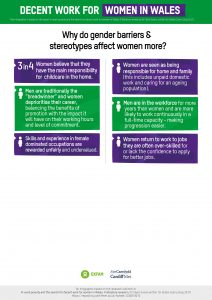
Not only does this resource teach learners how work is not always decent, it supports Oxfam in its journey to ensure that young people are educated, informed and aware of the issues of gender inequality locally and globally and have the skills, values and attitudes to take action should they wish to. The resource draws upon information from the report In-work poverty and the search for decent work for women in Wales written by Dr Claire Evans of Cardiff Metropolitan University and an infographic of the report has been designed especially for this resource.
Dr Evans commented that, “It’s a fantastic achievement having the Decent Work report as a Welsh Baccalaureate resource. I can’t think of a better way of propagating the message to the generation it will impact most.”
If you would like more information about the resource or the opportunity to access free workshops please contact jjames1@oxfam.org.uk
To view our other resources on the HWB platform click here
